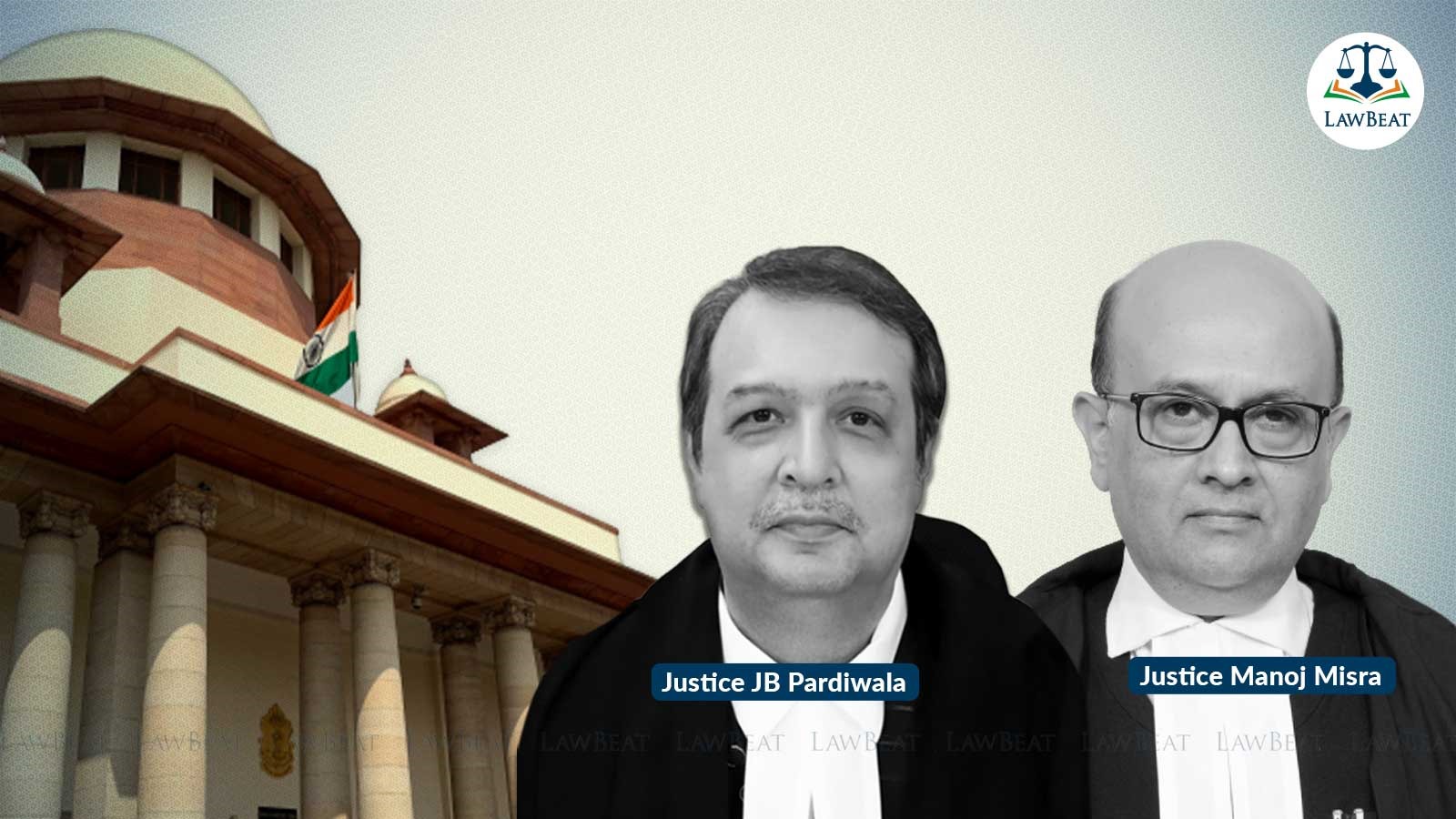Applications for Contract Rescission or Extension U/S 28 SR Act Must Be Decided in Original Suit: SC

Court said that even if the execution court is the court of first instance with reference to the suit wherein the decree under execution was passed, it must transfer the application filed under Section 28 to the file of the suit before dealing with it.
The Supreme Court has said that an application seeking rescission of contract, or extension of time, under Section 28 (1) of the Specific Relief Act, 1963, must be decided as an application in the original suit wherein the decree was passed even though the suit has been disposed of.
A bench of Justices J B Pardiwala and Manoj Misra said that even if the execution court is the court of first instance with reference to the suit wherein the decree under execution was passed, it must transfer the application filed under Section 28 to the file of the suit before dealing with it.
"An application under Section 28 of the 1963 Act, either for rescission of contract or for extension of time, can be entertained and decided by the Execution Court provided it is the Court which passed the decree in terms of Section 37 of the CPC," the bench said.
The court emphasized that the phrase “may apply in the same suit in which the decree is made,” as found in Section 28 of the 1963 Act, should be interpreted broadly to encompass the court of first instance, even when the decree is issued by an appellate court. This is because the decree pertains to the same suit, and under Section 37 of the CPC, the phrase “the court which passed a decree,” or similar wording concerning the execution of decrees, applies unless the subject or context indicates otherwise.
Court dismissed an appeal filed by one Ishwar (since deceased) through legal representatives and others against the Punjab and Haryana High Court's order of January 11, 2017, whereby revision by them against the order of Civil Judge (Senior Division), Kaithal was rejected.
The matter arose of a suit for specific performance for enforcement of a 2005 agreement to sell a land for a total sum of Rs 18 lakh of which Rs 9.77 lakh was paid in advance.
The Court of Additional Civil Judge (Senior Division), in 2011, decreed the suit in part, directing the appellants to refund the earnest money with interest, etc.
On the respondents' plea, the appellate court, i.e., the Court of Additional District Judge, Kaithal allowed the appeal in 2012 and accepted the prayer for the specific performance of the agreement.
It directed the appellants to execute the sale deed in favour of the respondents on payment of the balance sale consideration within a period of two months from the date of the decree, failing which, liberty was given to the decree holders to get the sale deed executed through court.
In 2012, the respondents, i.e. decree holders, filed an execution application before the Court of first instance (i.e., the trial court).
The appellant, the judgment debtors, challenged the appellate court decree by filing a second appeal before the high court, which came to be dismissed in 2013.
The respondents, the decree-holders, filed an application before the Execution Court in 2014 seeking permission to deposit the balance consideration in court.
The appellant -judgment debtors opposed the plea and filed a plea to rescind the contract on the ground that decree-holders had failed to make deposit within two months. The execution court rejected the application and allowed the decree holders to make a deposit. In this regard, the high court dismissed the civil revision.
In the case, the bench noted the decree holders had all throughout displayed their intention to pay the balance consideration and there appeared no intentional or deliberate fault on their part so as to deprive them of the fruits of the decree.
Court found that the contention of the counsel for the appellants that there was no proper prayer for condonation of delay in making the deposit of the balance consideration, or that there was no proper application for extension of time to make deposit, was unworthy of acceptance.
"We are of the considered view that the respondents had all throughout shown their intention to pay the balance consideration for execution of the sale deed whereas the appellants appeared interested only in challenging the decree before higher courts," the bench said.
In these circumstances, taking note of all the events, the execution court justifiably exercised its discretion in favour of the decree-holders by allowing them to deposit the balance consideration, the bench added.
"In our view, therefore, substantial justice has been done to the parties and if we interfere with the impugned order only on the technical ground that the application was not dealt with as one on the original side, grave injustice would be caused to the decree holders. More so, when the judgment debtors themselves applied to the Execution Court for rescinding the contract under Section 28(1) of the 1963 Act, and raised no such jurisdictional issue either before the Execution Court or the High Court," the bench said.
Court thus held no interference with the impugned judgment was called for in exercise of discretionary jurisdiction under Article 136 of the Constitution.
Case Title: Ishwar (Since Deceased) Thr LRs & Ors Vs Bhim Singh & Anr
